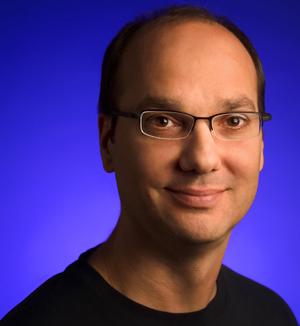Interview With Head Android Andy Rubin

There will be a couple of launches; we’ve generated a lot of interest in China. The use cases in China are slightly different in the U.S.; typically in China, because of the Asian input, people prefer a pen-based interface rather than a capacitive-touch based interface because they expect a stylus to be able to draw the complex characters. So the use case has completely changed but we have achieved compatibility.
This quote from Rubin comes as part of a rare interview published today (by CNET) and there is a LOT more interesting stuff than just the above upcoming Android stylus in China announcement. Which, by the way, will probably lead to China Mobile – the world’s largest carrier – getting an Android Phone. I’d like to include a few other snippets from the interview I found particularly interesting.
In our own interview with Android Team Member Eric Chu in 2008 we asked, several times, about monetization strategy. He simply stated their was no monetization strategy. Andy Rubin alludes to the same fact with a sense of confidence only Google could hold:
Google’s business model is deep into advertising, and so for Google this is purely a scale of the business, we just want to reach more people, and hopefully they’ll use Google and we’ll get the upside of the advertising revenue.
By the way, we’re confident enough in our advertising business and our ability to help people find information that we don’t somehow demand they use Google. If somebody wants to use Android to build a Yahoo phone, great.
On the concept of an actual, single “Google Phone”. Two interesting things to note here: (1) Apple dissed! (2) 100 Android Phones? Sounds good to me and I bet happening in 2010 isn’t impossible:
I’d much rather be the guy that does a platform that’s capable of running on multiple companies’ phones than just focusing on a single product.
A single product is going to have, eventually, limitations. Even if that was two products that’s going to have limitations. But if it’s a hundred products, now we’re getting somewhere, to the scale at which Google thinks people want to access information.
On why we haven’t seen more Android Phones:
It takes about 18 months to build a phone from end to end. What we wanted to do for our market entry was make sure that we had one successful showcase product to prove that the product was reliable and robust and ready to go. We chose HTC as our partner for that.
At the moment we open-sourced, November 7 (2007), that’s when a lot of these guys got their hands on it. We’re still in that 18-month window of building products, and what you’ll see coming up is a whole string of products.
The entire interview is phenomenal and I strongly suggest you head over to CNET and read the whole thing.